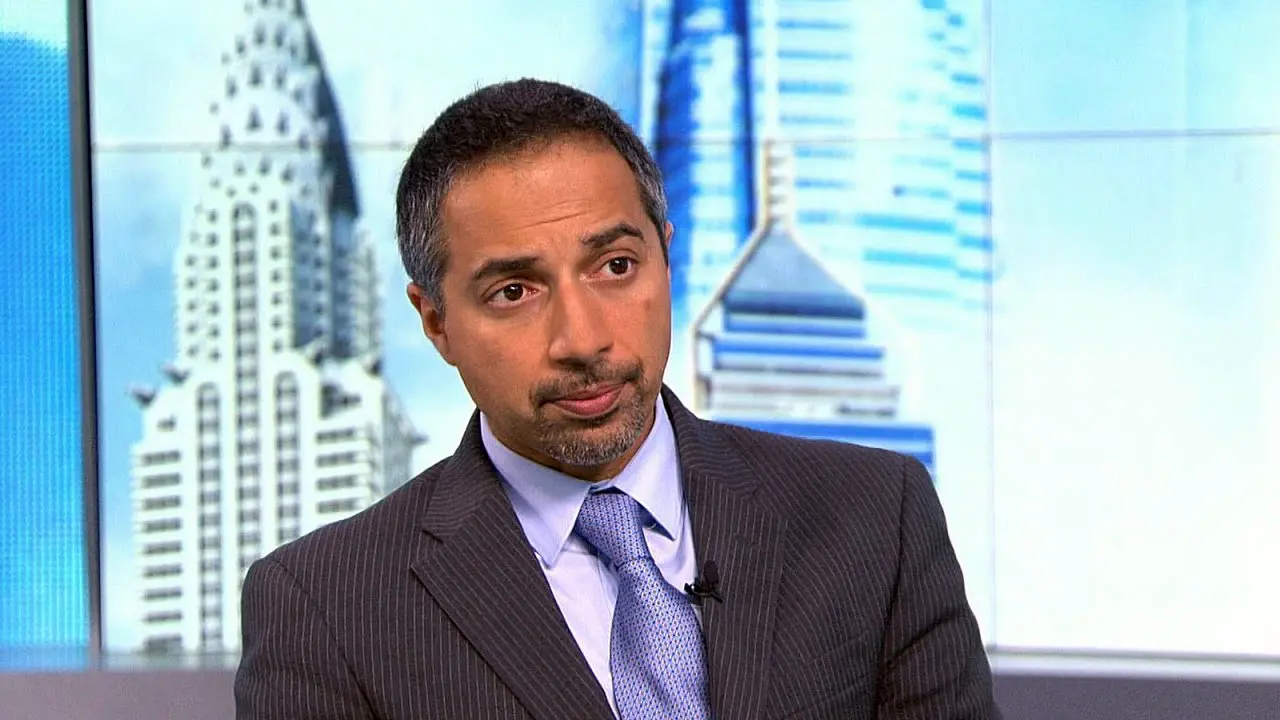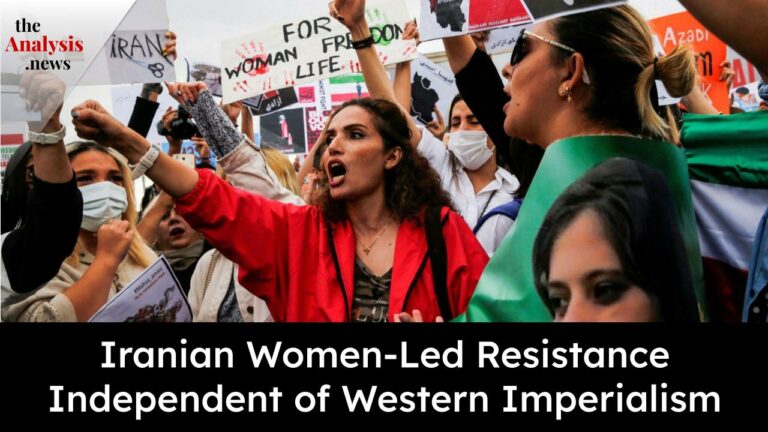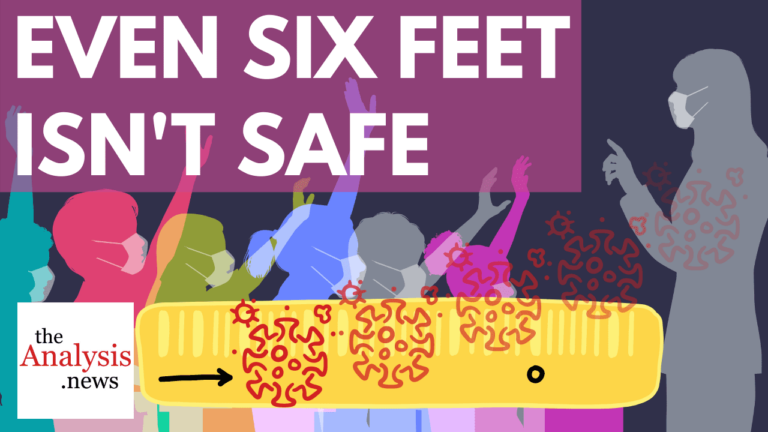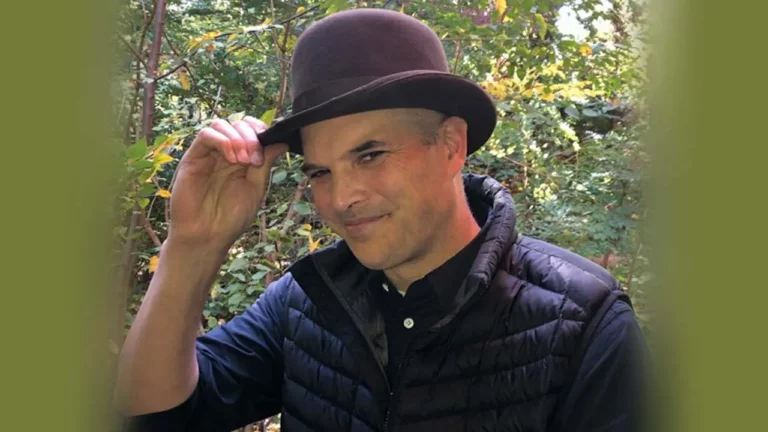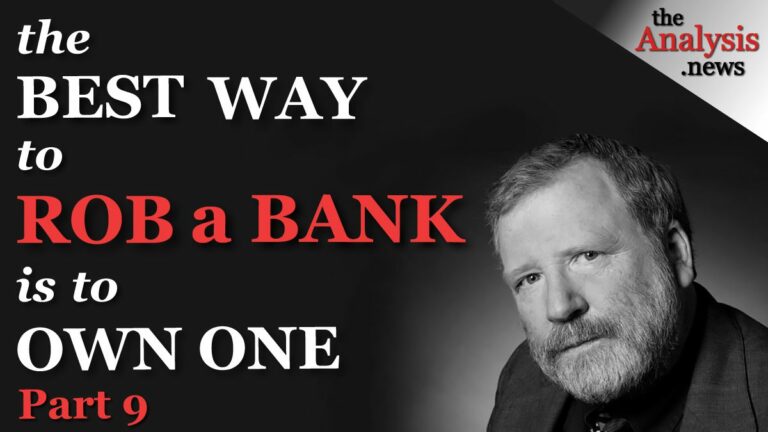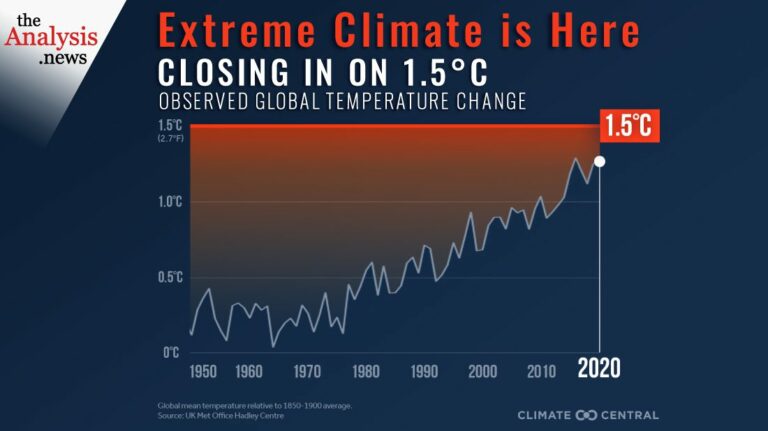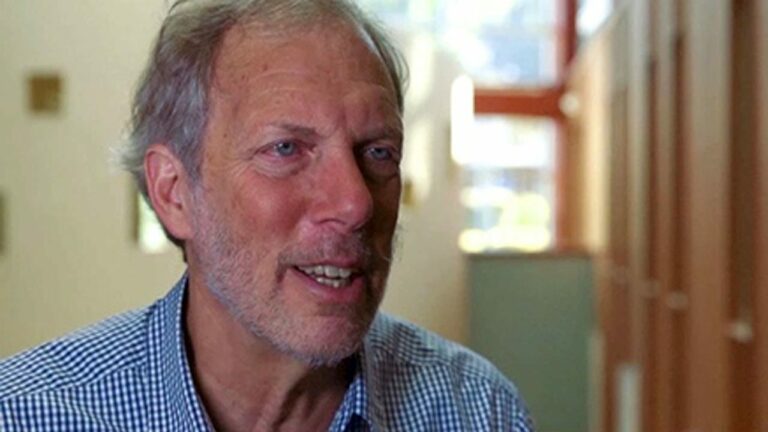Elliot Abrams Tries to Tie Biden’s Hands on Iran – Trita Parsi
Abrams, a true Darth Vader of U.S. foreign policy, is in the Middle East drumming up support for even harsher sanctions on Iran – in the midst of the pandemic that has killed tens of thousands. Trita Parsi joins Paul Jay on theAnalysis.news podcast.
Paul Jay
Hi, I’m Paul Jay. Welcome to theAnalysis.news podcast. Please don’t forget the donate button at the top
of the webpage.
The Associated Press reports that Elliott Abrams, one of the true Darth Vaders of U.S. foreign policy —
OK, that’s me, not AP; now we’re back to AP — and the U.S. Special Representative for Iran, while on a
trip to the Middle East, insisted Thursday that a maximum pressure campaign of sanctions targeting Iran
would persist into the administration of Joe Biden, even as the president-elect has pledged to potentially
return America to Tehran’s nuclear deal with world powers. The Trump administration has made perhaps
its highest foreign policy objective weakening and, if possible, bringing down the government and ruling
circles of Iran. Trump’s killing of the Iranian general Soleimani was an attempt to provoke Iran into a war,
a tactic that didn’t work. Iran was also the target of the Bush-Cheney administration, who could not abide
a regional adversary with the capability of firing ballistic missiles at American troops and allies.
Obama’s deal with Iran to limit its ability to develop nuclear weapons technology was a break with the
neocon agenda of regime change in Iran. It was an acceptance of Iran as a regional power, a role that
was strengthened by the disastrous Iraq war. Biden says he will return the US to that agreement and end
U.S. support for the Saudi war in Yemen.
So, why is Elliott Abrams, a man connected to the most aggressive foreign policy the last few decades,
touring the Middle East drumming up support for even more intense sanctions at a time of the Covid crisis
and tens of thousands of deaths in Iran? Does Trump still want to be a wartime president? Elliott Abrams
says while the military strike is not off the table, any suggestion that Trump is planning such a strike
against Iran is, quote, “Garbage.” Well, do the neocons who have supported Biden over Trump, expect
something in return?
Now joining us is Trita Parsi, Executive Vice President of the Quincy Institute for Responsible Statecraft
and author of Treacherous Alliance: The Secret Dealings of Israel, Iran, and the United States, A Single
Roll of the Dice: Obama’s Diplomacy with Iran, and Losing an Enemy: Obama, Iran, and the Triumph of
Diplomacy.
Thanks very much for joining us, Trita.
Trita Parsi
Thank you for having me.
Paul Jay
So, Trita, start with why you think Abrams is over there at this moment, right after the elections.
Trita Parsi
Well, the official reason — and it’s interesting that they haven’t even tried to hide it — is that he is there to
coordinate with the Israelis, the Saudis, and the Emirates in order to provide a flood of new sanctions that
will make it next to impossible — their calculation — for the Biden administration to go back to the nuclear
deal. These new sanctions will not be connected to Iran’s nuclear program but will be based on human
rights abuses, missile technology, etc., and, as a result, will make it more difficult, if not impossible, for the
Biden administration to undo them, which would be necessary in order for the JCPOA [i.e., the Iran
nuclear deal] to be resurrected. And it reveals, incidentally, that all of this talk that sanctions were only a
means to be able to get to the negotiating table was always a complete lie. This was a tactic aimed at
bringing down the agreement and making diplomacy with Iran impossible. And when diplomacy with Iran
is impossible, for two countries that are in the same sphere, the likelihood of war dramatically increases.
Paul Jay
Well, if human rights are supposed to be the rationale for new sanctions, it’s kind of ridiculous that the
Saudis are on the side of sanctioning. I mean, how could you even talk about human rights in Iran when
you’re allied with the Saudis?
Trita Parsi
Indeed. I mean, at the end of the day, I think this administration made it quite clear and explicit. There
was a memo that was being circulated at the State Department’s Office of Policy Planning, I believe,
written by Brian [Hook] — the previous coordinator on Iran for Trump — which essentially said human
rights abuses should be used as a weapon against America’s enemies but we should not be complaining
about countries that are allied to the United States and that are abusing human rights. In some ways, it
was making explicit and more blatant what, frankly, had been standard American practice. But the United
States, unfortunately, already has a long record of instrumentalizing human rights and using it mostly
against countries that are opposing the US rather than using it equally against countries, whether they’re
friends or foes of the United States.
Paul Jay
Why a new round of sanctions that are done in, we assume, the dying days of the Trump administration?
Trump doesn’t seem to think so but a lot of the neocons, who are very aggressive towards Iran, seem to
think this is the end of Trump. Bolton’s on television every other hour, on one channel or another, telling
Trump to step down and telling other Republicans not to support Trump in all this litigation and so on.
Certainly, Bolton is one of the more aggressive of the neocons towards Iran, but not the only one. And
other [neocons] have been really supporting Biden openly against Trump all along in this election
campaign. Some of the people in the Lincoln Project — not all, but some of them — are neocons. What are
they expecting from Biden? Will he undo these new sanctions or is he changing his approach to Iran as
part of some deal with these neocons?
Trita Parsi
It is too early to say. I think the signals that Biden have sent, however, have been clear: he intends to go
back to the agreement. We should also keep in mind that all of the Democratic candidates for president,
with the exception of one or two, pledged that they were going to go back to the agreement. It is part of
the Democratic platform to revive the JCPOA. I think there are challenges ahead, and there is clearly an
effort by the Trump administration to try to increase those challenges.
The idea is that because these [new] sanctions are not tied to the JCPOA, to the nuclear program, they
will make it more difficult for Biden to undo them as a result of an attempt to go back to the JCPOA. The
Iranians clearly will object and say, “You know, lifting all of those other nuclear sanctions are meaningless
if the very same economic punishment nevertheless still exists but just on a different basis.”
I think in some ways the Trump people may have undermined themselves because they made it so
blatantly clear that ultimately, regardless of what type of legal pretext they use for the [new] sanctions, the
objective is to undo the nuclear deal. And that, I think, will create a lot of sympathy for the demand that
Biden lift all of these sanctions. It will help him politically, frankly, here in Washington. Otherwise, there
would probably have been opposition in some Democratic quarters if he were to lift sanctions that were
targeting the ballistic missile program. But now when it’s so clear that those sanctions are only there to kill
the JCPOA, it may actually make it less problematic for him to lift them.
Paul Jay
Biden has to work pretty closely now with Chuck Schumer in the Senate. If they win these two seats in
Georgia, it’s going to be by a hair that they control the Senate. And there is certainly no guarantee of that
[win]. Schumer and the people he’s allied with in the Democratic Party were against the nuclear deal with
Iran. Is that going to affect Biden’s approach to this?
Trita Parsi
I think less so than even last time, because at the end of the day, Schumer was in a complete minority
and progressive organizations like MoveOn promised that they would fund candidates in primaries to run
against people like Schumer and others who voted against it. We saw that Eliot Engel, who also voted
against the deal, lost his seat earlier this year in a primary. And when you take a look at the new
Democrats that are coming in, they are of a different orientation when it comes to these things. They’ve
been brought up thinking that the JCPOA is a major Democratic achievement. As a result, the sympathies
and the orientations of some of the more establishment Democrats are, I think, actually weaker — even if
Chuck Schumer continues to control the Senate. He was in a minority last time on the JCPOA; he will
continue to be in the minority on the JCPOA if he continues to oppose it.
Paul Jay
What is the situation in Iran now? I see a number, something like 40,000 deaths, and many people think
that’s actually a major underestimation. How badly are the Iranian people being affected by sanctions?
And what if there are more sanctions, especially at this time?
Trita Parsi
The sanctions have clearly been absolutely devastating for the Iranians, particularly when the Covid
pandemic is happening at the same time. It was quite something to see the Trump administration
explicitly talk about Covid being something that would amplify and augment the impact of sanctions. I
mean, I think it reveals the cruelty that has been the intent behind these sanctions. Now, of course, the
government’s own corruption and its own mismanagement have also considerably contributed to the
difficulties that exist right now in terms of Covid.
The hopes, however, for some form of a return to the JCPOA and brighter days seems to be there. But
my own sense, talking to a lot of Iranians of late, is that there is a tremendous cautiousness when it
comes to being optimistic. Last time, they were optimistic when the JCPOA came in. And they had good
reasons to be optimistic. Nevertheless, they saw all of their hopes being dashed with Trump coming in,
reversing the deal, and reimposing sanctions. And even before he came in, the sanctions relief process
had not at all worked the way that most people had expected it to work, and the way the Iranians had
demanded that it should work. So, there is some caution, but at the same time some optimism, that with
Biden coming in and intending to return [to the JCPOA], that there could be some sort of respite from
some very, very dark years that the Iranians have suffered through.
Paul Jay
There was some discussion or speculation about whether the Iranians would even want to return to a
deal, given that, “they don’t really have a reliable partner.” You never know every four years whether you
actually have an agreement or not. But it seems like the Iranian government is sending signals that they
do want the Americans back in [the agreement].
Trita Parsi
Yeah, I think they do. I think they will try to see if there is some form of guarantee. There is obviously no
complete guarantee that can be offered, but there can be mechanisms put in place. In fact, there should
be mechanisms put in place to make sure that this deal is not going to be at the whim of whoever wins
the White House next time, that it will be insulated from such political events. At the end of the day, this
was tremendously irresponsible of the United States: to take a deal that the entire international
community was behind, with the exception of Saudi Arabia, UAE and Israel; that had fifteen-to-zero votes
in the UN Security Council; that clearly lay in the strategic national interest of the United States and to
then let that become a political football. That is the height of irresponsibility. And I think it’s quite
reasonable for other countries, not just Iran, to expect that mechanisms will be put in place to make sure
that this cannot happen again.
Paul Jay
If Biden follows through on his pledge not to support the Saudi war in Yemen any longer and if he follows
through and actually does return the United States to the nuclear agreement, is there somewhat of a
realignment taking place vis-à-vis the US relationship with the Saudis? And, one would think, if that’s the
case, I don’t know what the Saudis can do about it between now and January 20th but they must not be
very happy about a Biden government coming in.
Trita Parsi
They’re certainly not happy. And taking a look at how they have responded so far or not responded [to
Biden’s victory], I think that’s indicative of how worried they are. I mean, this is a government that really
invested in the Trump administration. So, did the Netanyahu government and the MBZ [i.e., Mohammed
bin Zayed bin Sultan Al Nahyan, the Crown Prince of the Emirate of Abu Dhabi and Deputy Supreme
Commander of the United Arab Emirates Armed Forces] government in the UAE.
But I think that in terms of what will happen next and how the Saudis will view it, I don’t think there is any
appetite in the Biden administration for some sort of a realignment in terms of the US moving closer to
Iran. I think at most there is an appetite for redefining the US-Saudi relationship. There I do think the
Biden administration needs to go pretty far. I mean, one has to ask oneself, what do the Saudis need to
do before there is an agreement in the White House, whether it’s a Republican or Democratic White
House, that there’s something off with this relationship between the United States and Saudi Arabia, that
something in that relationship needs to fundamentally change?
I’m not talking about the US and the Saudis becoming enemies. I’m just saying that it cannot be the way it
is. It cannot be a strategic partnership if the Saudis are engaged in a genocide in Yemen, if they are
cutting off the heads of columnists of The Washington Post. I mean, what do they need to do before that
realization comes into place in the White House?
Paul Jay
Well, a lot of people think they were directly involved in 9/11, and that didn’t seem to affect the
relationship.
Trita Parsi
The politics have changed. I mean, just take a look at how Democrats are talking about Saudi Arabia
today. It’s quite dramatically different. The question is, will they act on it or is it just something that they’re
saying during an election year?
Paul Jay
OK, well, we’ll see once Biden gets in. Just very quickly, what will Biden’s choice of secretary of state tell
us about where he’s heading on Iran? Or are all of the possibilities more or less on the same side when it
comes to the nuclear deal with Iran?
Trita Parsi
I think the biggest thing I would look for when it comes to who he appoints as secretary of state is to see
what it tells us about the willingness of the Biden administration to think outside of the box when it comes
to American foreign policy. I mean, we’re now in a situation in which there is essentially one 9/11’s worth
of American deaths every three days. Every three days, we have the equivalent of a 9/11. And $800
billion sent to the Pentagon has done absolutely nothing for that. This over-militarized foreign policy has
done nothing to protect the American people from the real threats of this era, which are not the invasion
of the United States by another country, but rather pandemics, climate chaos, etc. Is there going to be
that willingness to really profoundly revisit the first principles of American foreign policy and America’s
military posture abroad? Or will there be just some marginal changes in the hope of making sure that —
you know, “At least it’s not Trump running the show”? That is what I’m going to be most focused on when
it comes to who he appoints at the State Department.
Paul Jay
All right. Thanks for joining us, Trita.
Trita Parsi
Thank you so much for having me.
Paul Jay
And thank you for joining us on theAnalysis.news podcast. Please don’t forget the donate button at the
top of the Web page.
Podcast: Play in new window | Download
